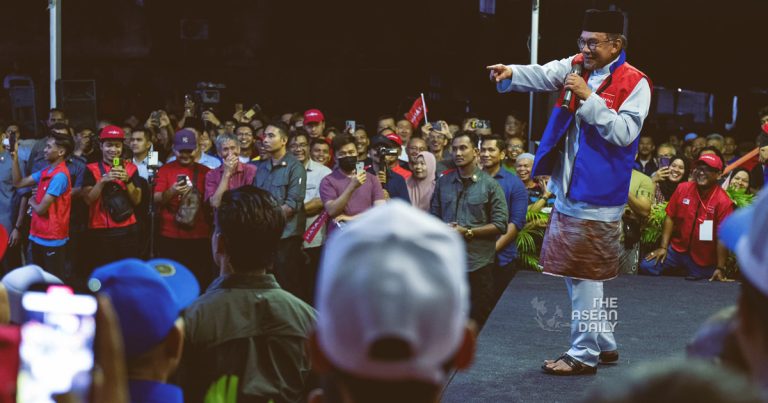8-8-2023 (KUALA LUMPUR) Selangor, Malaysia’s most developed state, has become a battleground for political parties as they vie for the support of the urban poor facing challenges such as limited job prospects and inadequate access to public healthcare facilities.
Being under the rule of the Pakatan Harapan (PH) coalition for the past 15 years, losing control of Selangor is not an option for the parties involved, according to observers.
In their bid to secure victory in the upcoming state polls, parties are leaving no stone unturned, engaging in walkabouts and rallies to sway the undecided voters. Economy Minister and PH’s national election director, Rafizi Ramli, emphasized the importance of winning over fence sitters, stating, “Elections are never won through your hardcore supporters, it’s always about how much of the fence sitters that you can sway to your side.” Ramli also expressed caution and emphasized the need for close monitoring, citing the last general election where swings in support occurred at the last minute.
However, the prolonged economic hardships faced by the urban poor are testing the patience of voters. While some claim to have witnessed little change, others believe that the ruling coalition should be given more time to address the issues at hand.
In Taman Medan, a densely populated Malay enclave in Selangor, residents are concerned about the rising cost of living, worsening traffic congestion, and inadequate healthcare facilities. Azlan Zulkifli, a resident of Taman Medan, highlighted the struggle of salaries failing to keep up with the high cost of living. He noted, “Previously, RM150 (US$33) could buy you a shopping basket’s worth of items. Now, you can’t even fill half a basket (when spending the same amount).”
Taman Medan, which has a significant population of urban poor, is one of the 39 Malay majority seats in Selangor targeted by the opposition Perikatan Nasional (PN) in the 56-seat state assembly. Residents anticipate that these issues will worsen with rapid urbanization. The single government clinic in Taman Medan is reportedly overwhelmed, unable to meet the needs of its residents. Azlan expressed his concerns, saying, “It’s overpopulated now. Last time, there were squatters, but now they’ve built flats, so more and more people are living here. The population needs to be reduced or we need to add more facilities. One clinic is not enough to cater for 200,000 residents.”
PN candidate Afif Bahardin highlighted the economic struggles faced by urban poor populations in approximately seven state seats, including Taman Medan. He urged Selangor not to compare itself to less developed states like Kelantan, but rather to aspire to the standards set by cities like Singapore, Hong Kong, or Taiwan.
To secure victory in Selangor, PN is relying on a strong turnout of Malay voters. Afif stated, “We are focusing on bringing out the voters. We want the percentage of voter turnout to be higher, especially in the Malay areas.” He added that a higher Malay voter turnout, exceeding 79%, would be crucial for PN to wrest control of the state from the PH coalition, as the majority of Malays voted for PN in the recent general election.
Meanwhile, Prime Minister Anwar Ibrahim, in the hopes of regaining Malay support, has formed an alliance between PH and Barisan Nasional. He has also unveiled the Madani Economic Narrative, aimed at driving stronger economic growth and improving the quality of life for all Malaysians. Promising increased cash handouts for low and middle-income groups, Anwar emphasized the importance of assisting those in need, regardless of ethnicity or region.




